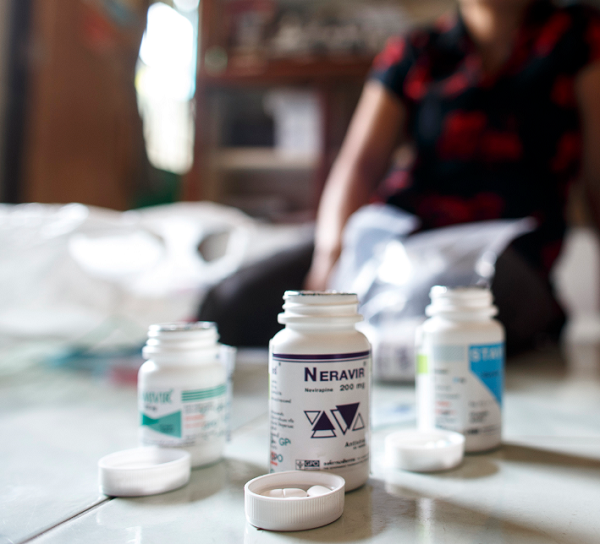HIV Cure On The Way? Researchers To Test Combined AIDS Treatments On Patients In 2017

Researchers at Case Western Reserve University’s medical school received $2.5 million in funding to test two never-before-combined AIDS treatments on patients, according to Tuesday reports. Scientists believe the novel combination of drugs could lead to a cure for HIV, a disease affecting more than 36.7 million people worldwide, according to the Centers for Disease Control.
Both HIV-suppressing drugs have been administered as separate treatments for HIV and AIDS patients for years. However, scientists have never actually attempted to combine the drugs – a body-produced protein that fights off diseased cells called Interlukin-2, or IL-2, and a lab-made antibody that targets HIV. Neither of the drugs are capable of eliminating HIV from the human body alone, however, IL-2 and other monoclonal antibodies have proven to reduce the disease’s presence.
“Our study will go the next step and use them together. We want to see if they produce more of a wallop in tandem than when administered individually,” Lederman said in a statement to Newswise.
The study, which is set to start in the second half of 2017, will test the novel drug combination on 16 patients for 64 weeks. During the clinical trial, patients will be separated into two treatment groups, one which will only be given IL-2 while the other will receive IL-2 and a monoclonal antibody that neutralizes HIV.
Researchers are hoping to determine if the new combined treatment is capable of reducing latent HIV reservoirs, cells that are infected with HIV but don’t actively produce HIV. The reservoirs are still capable of becoming reactivated, and the study aims to discover if the HIV reservoirs will decrease and potentially eliminate the presence of HIV if combined.
“We think it's important to try to confirm those findings in a prospective trial and just as important, see if the addition of a monoclonal antibody enhances the activity of IL-2,' Lederman said.
Case Western Reserve University’s latest grant comes just weeks after researchers at London’s University College announced they successfully developed an HIV treatment in a separate study. The treatment, derived from cells derived from humans and mice, acted as a defense against HIV replicators that attack healthy white blood cells known as macrophages.
© Copyright IBTimes 2024. All rights reserved.






















